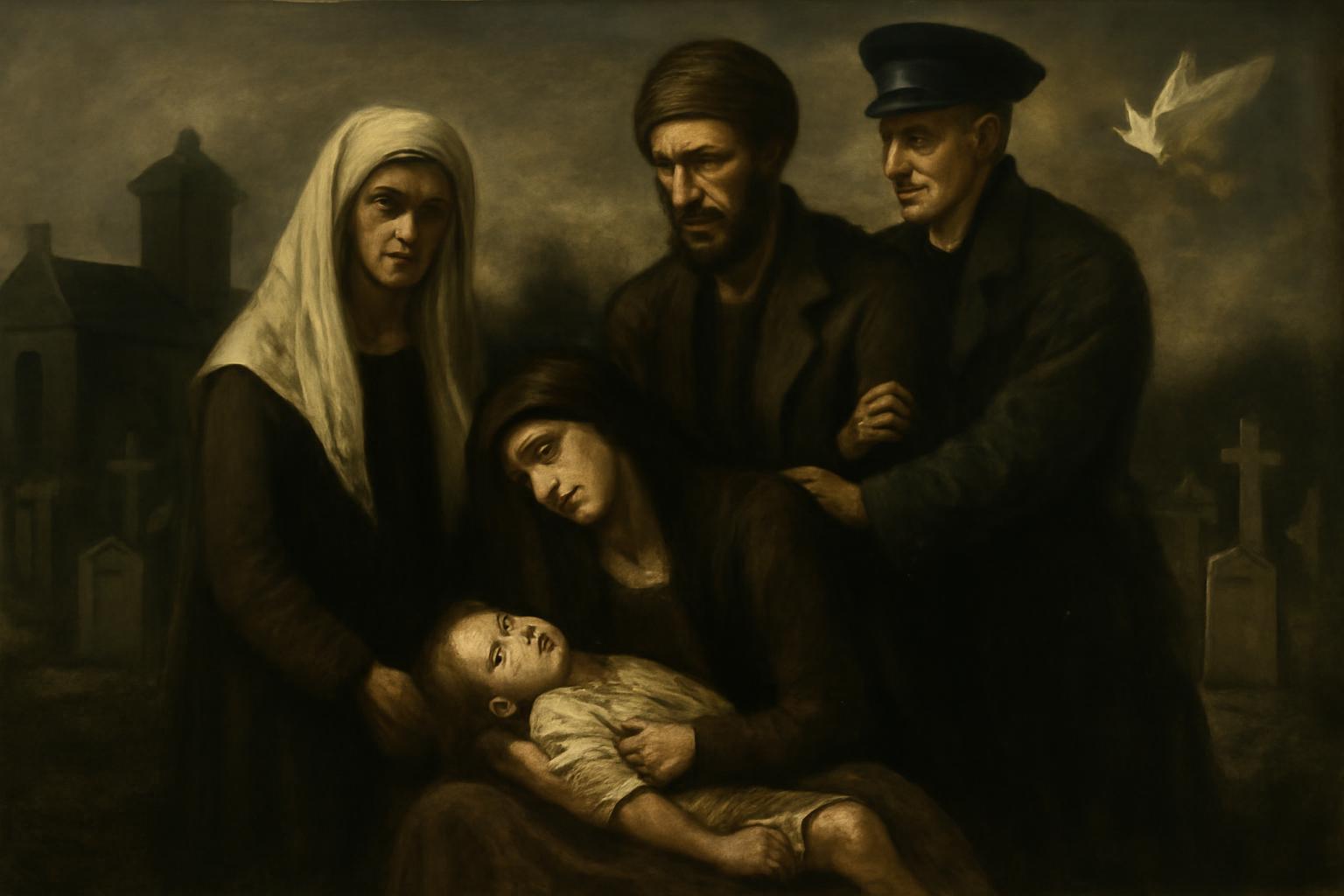Under the gray, unforgiving sky of present history, the spectacle unfolds—a machinery of state enacting its ancient rite of expulsion, now dressed in the tattered, ill-fitting garments of bureaucracy and humanitarianism. The modern soul, weary and deracinated, may yet shudder beneath the surface as, amid the cold count of deportees—forty-two, or forty-three, depending on whose truth prevails—one discerns not numbers, but the trembling figures of women, children, and a Yazidi family for whom the promise of sanctuary flickered dimly before extinction.
Justice, in our time, is an anemic echo, arriving always too late, its decrees rendered void by the inexorable haste of power’s machinery. For the Yazidi family, the judgement arrived after the cruel logic of order had already cast them across the border, a tragic lag between the dispensation of law and the calamity of fate—resembling nothing so much as the agonies of Antigone, who buries the dead brother only to discover the world’s law stands implacably against her, a world ever at war with the higher demands of pity.
And yet, what ambiguity is this, where ‘criminality’ is blurred by the shifting sand of legal language and political expedience? We witness, as Nietzsche foresaw in his lamentations over the twilight of idols, the perishing of truth itself, replaced by administrative convenience and the empty pantomime of justice. Here are the “criminals”—yet innocence and guilt are dissolved into mere technicality; the flesh-and-blood tragedy of each soul is flattened into the neat, faceless columns of data.
So the West persists in its decline, ever more alienated from the wellsprings of its own conscience—a civilization once shaped in the crucible of suffering and striving, now surrendering its capacity for tragedy, for the reckoning with evil and misfortune, in favor of the anesthetic clarity of policies and quotas. Is it a wonder, then, that the fate of the Yazidis—those who have already endured the relentless wheel of exile and calculated cruelty—should seem a triviality in the cool halls of state? The very parliament that recognized genocide now shrugs in bureaucratic helplessness, a gesture worthy of the chorus in some lost Euripidean play, muttering powerlessly of things that cannot be undone.
Our inheritance is squandered, our tragic wisdom forgotten. In our frenetic pursuit of safety, efficiency, and procedural justice, we are become, as Cioran warned, “heirs to a vacancy, tenants of an absence,” and the foreigner—the vulnerable innocent—comes to us not as a test of our greatness, but a burden to be expelled, an error to be corrected. Thus, the ancient cycle continues, only stripped of all grandeur, all pathos, all meaning, as the secular machinery of late modernity grinds ever onward, bearing our dead gods in its wake.
